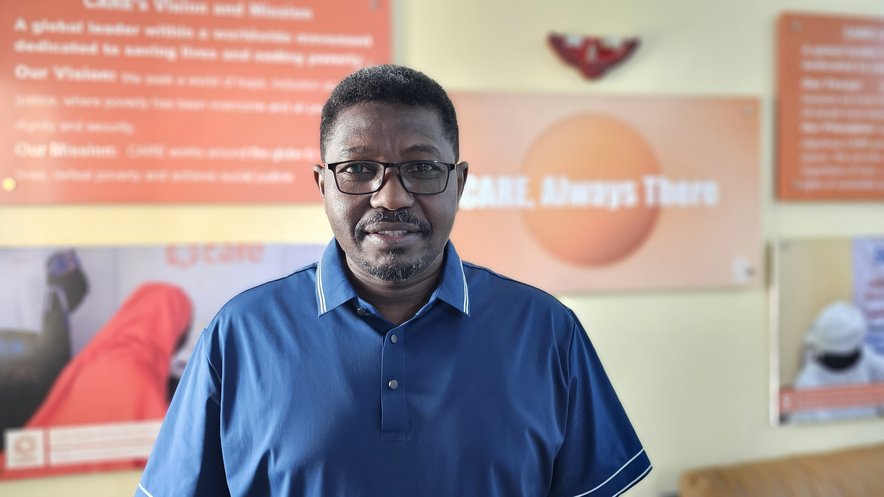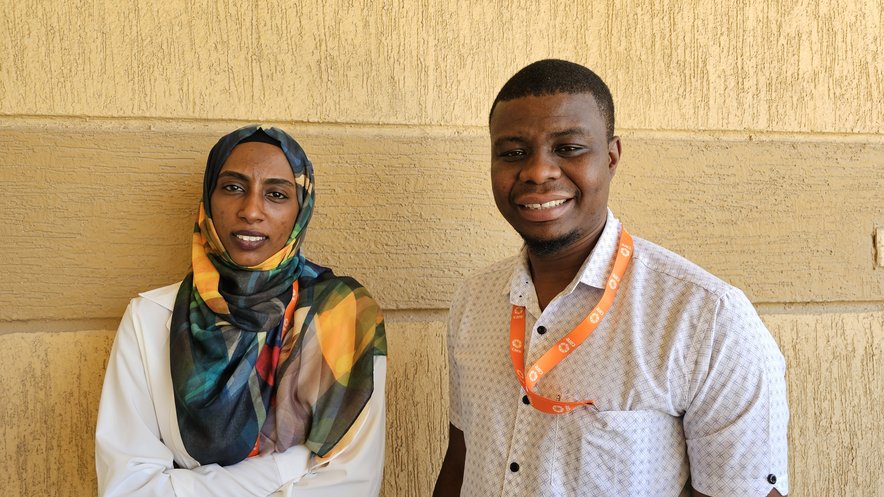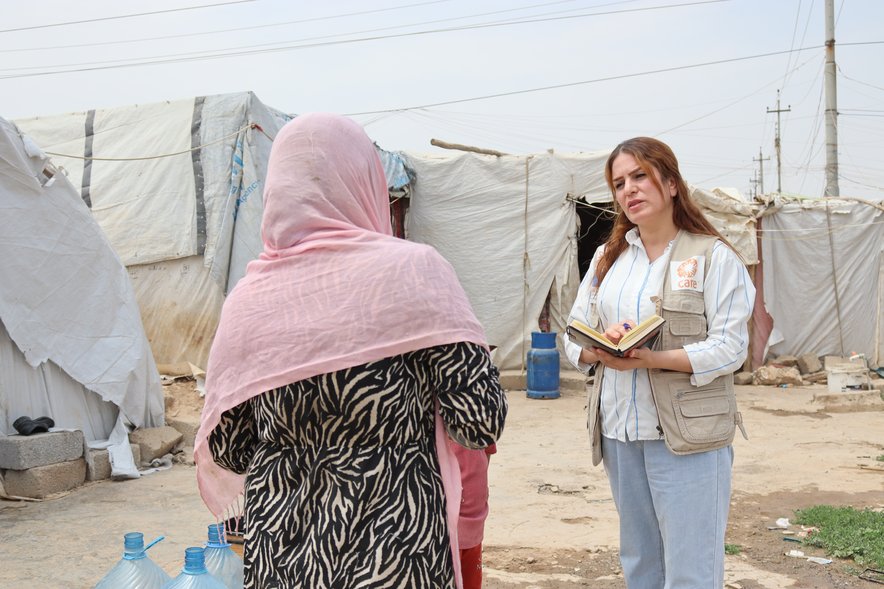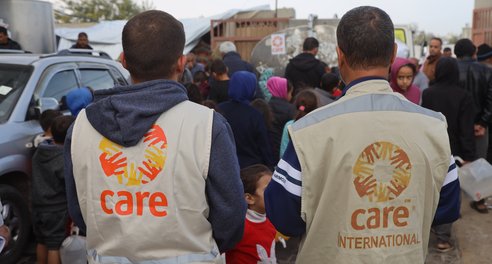This World Humanitarian Day comes with a devastating truth: 2025 is on track to become the deadliest year ever recorded for aid workers. Already, 265 humanitarians have been killed in deliberate attacks - a staggering rise of nearly 50% compared to this time last year.
Local aid workers are carrying the heaviest burden in crises – this year, 97% of those killed were national staff. In the Occupied Palestinian Territories alone, where more than 180 have been killed, they are struggling to find enough food, water and medicine just like the communities they serve.
Samah*, a malnutrition expert working for CARE in Deir Al-Balah, Gaza said: “How can I talk about my safety as a humanitarian worker when all I think about every day is my children and family’s safety. Children in Gaza are being denied health, education, food, dignity, and safety. My children and I are being starved.”
Samah previously was unable to commute to work due to the threat of sniper fire at checkpoints, adding: “The dangers that humanitarian workers face in Gaza are not just limited to the nature of our work. They are weaved into the lives of everyone in Gaza, turning every day into a fight for survival.”
How can I talk about my safety as a humanitarian worker when all I think about every day is my children's safety."
In Sudan, where women and girls face the constant threat of systematic conflict-related sexual violence, over 100 aid workers have been killed since the onset of conflict in April 2023 - including 60 so far this year.
Berima*, a CARE Sudan staff member, was forced to flee Khartoum in the earliest days of the war under heavy shelling as armed groups roamed the city. Eventually, he managed to reunite with his family in South Darfur.
Berima said: “My family were not able to sleep as they were so afraid of what was happening. It was very dangerous in our town and moving around to find food or water could get you shot. My road was hit heavily by shelling and neighbours were killed by bombs.”

Walaa, a CARE Sudan procurement officer, and her family stayed hidden in their home in darkness, with no water or power, when the war broke out. On the sixth day, she and 35 family members piled into the back of a small truck and left Khartoum.
“There was no room for anything else. Just people’s lives. We left all our belongings behind. The only thing I brought was my CARE laptop, because I needed to keep working,” she said.
“I do my job every day under difficult conditions. What the support staff does, is often not actively seen, but we are here, and are still working, so that others do not lose everything. Even though our lives have been changed so much, and working often means just standing outside in the heat next to a mountain trying to find good network.”

Takunda, a CARE international staff member from Zimbabwe, had already survived more than most; in Afghanistan, he was once on a plane when a suicide bomber attempted to bring it down. He had been evacuated from Syria in 2019, and from Afghanistan in 2021 as the US forces withdrew. But in Khartoum, he found himself trapped alone in a guest house.
“There was so much shooting outside the house. I could not sleep. Fear kept me awake. I needed to control my thoughts. I kept thinking about my children and that I wished I could spend more time with them,” he said. With the help of Walaa and a family friend, he made it to Port Sudan.
“I see the difference [aid workers] make. This is what I’m good at, I can’t stop now. I have been evacuated four times in my life, but I continue because I believe in my work. I love seeing the change we can achieve.”

Hayfa, a case worker for CARE’s partner organisation The Lotus Flower, supports internally displaced Yazidis living in northern Iraq, where severe depression, social isolation, and even suicidal thoughts - including among children - are common.
In 2014, Hayfa herself fled a genocide. She and her family survived - many others did not. Since then, she has lived in a displacement camp, sharing a single tent with her parents and five sisters.
“The conversations with the traumatised women always bring back terrible memories. I see their fear - and recognise my own story in it. I became a fighter for women's and girls' rights because I wish there had been women like me when I was a child. I want to help self-confident girls grow up to be strong women,” she said.
Media enquiries
For all media enquiries, please contact Zaina Alibhai



